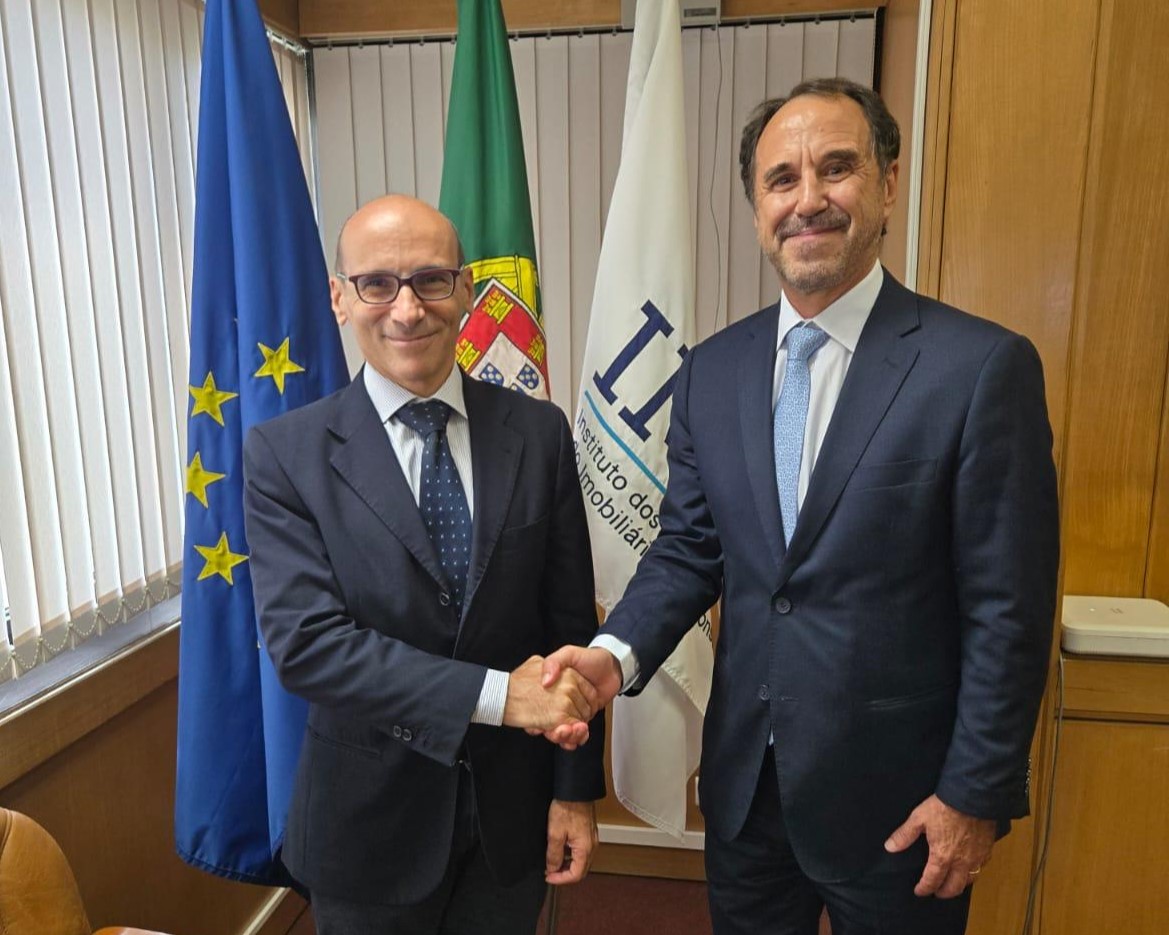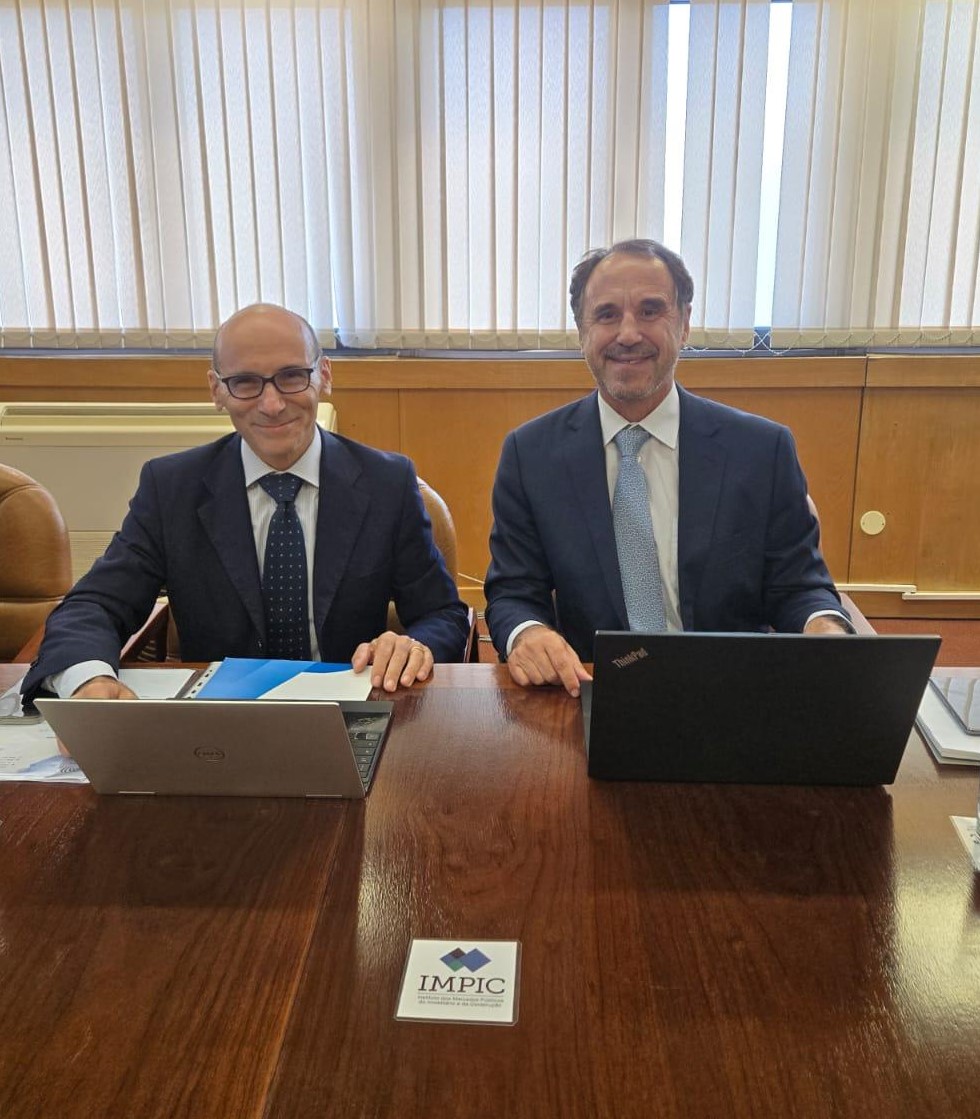Public procurement, ANAC in Portugal. Busía: the complete removal of internal barriers within Europe
Dates:
22 September 2025 -

Public procurement, ANAC in Portugal. Busía: the complete removal of internal barriers within Europe
The third PPN (Public Procurement Network) meeting and the sixth interdisciplinary public procurement symposium took place in Lisbon
Double mission in Portugal for ANAC. On 17 September 2025, the third PPN meeting took place in Lisbon. The PPN is an informal network of institutions from European Union countries, launched in Brussels last January. ANAC President Giuseppe Busìa attended, accompanied by Lorenza Ponzone, Head of International Relations at Anac, and Silvia Pomes, an official from the International Relations Office.
On 18 and 19 September, also in Lisbon, the sixth interdisciplinary symposium on public procurement took place, at which President Busìa spoke on the morning of 18 September
A key topic at the symposium was the digital revolution in procurement and the professionalisation of contracting authorities.
“The EU’s revision of the Public Procurement Directives is particularly significant. It will determine the EU’s geopolitical positioning with regard to the dilemma between protectionism and free trade”, said President Busìa. “In any case, urgent action is needed: the complete removal of internal barriers within Europe so that procurement markets can operate more openly and effectively across borders. Only in this way can procurement become both an engine of European integration and a safeguard of resilience in an uncertain global environment”. “We are well aware”, the President of ANAC added, “that there is a strong need to simplify procedures and reduce administrative burdens. However, we must avoid this shared objective compromising the achievement of environmental, technological and social goals”.
When asked about the role of artificial intelligence, Busìa stated: “If governed responsibly, AI can support procurement in low-risk areas today, such as scanning tender documents for errors, detecting anomalies, helping to forecast future needs, and measuring system efficiency. Used in this way, AI can reduce administrative burdens and free up human judgement for strategic decisions.” “However, he added, we are also aware of the risks, including the risk of delegating decisions that must remain in the public sphere to private companies. Poorly designed algorithms can embed bias, compromise fairness or erode accountability. Procurement decisions affect markets and citizens’ trust, so they cannot be left to black-box systems. AI in procurement today can be a powerful assistant, but not yet a real substitute. It can be a fundamental ally of the public interest only if it is guided at all times by transparency, human oversight and clear ethical standards”.
“In summary, we must use AI as much as we can govern it, rather than being governed by it”.
The Public Procurement Network meeting in Lisbon focused on improving public procurement practices across Europe. Discussions included effective utility systems, AI applications and relevant OECD projects. IMPIC Surface Hub emphasised the importance of knowledge sharing and collaboration in light of upcoming European regulations, and Giuseppe Busìa recognised the importance of the meeting in fostering partnerships. ANAC is coordinating the network of European public procurement institutions (PPN) for 2025, together with the Portuguese authority, IMPIC.
The National Appeal Chamber (NAC) in Poland provided insights into its role in the public procurement remedy system, detailing the appeal process for economic operators. With a focus on transparency and accessibility, the NAC has reported a significant increase in the number of appeals accepted this year, with almost 6,000 being approved. The chamber's decision-making process revealed that 28% of appeals were dismissed, while 35% resulted in favourable outcomes for operators. While challenges such as technical issues in automating submissions were acknowledged, the NAC remains committed to maintaining an effective remedy system and is open to potential reforms.
The meeting also addressed the integration of AI in public procurement, particularly in the healthcare sector, where the aim is to enhance efficiency and transparency. The IMPIC Surface Hub emphasised the importance of complying with EU standards for medical devices. Plans for the future include shifting bidding practices from price-based to results-oriented approaches, alongside the OECD's ongoing efforts to provide evidence-based policy advice and promote best practices in public procurement.
The network aims to promote collaboration and the sharing of knowledge and best practices in public procurement. Fifteen countries have joined the network: Cyprus, Denmark, Finland, Ireland, Italy, Lithuania, Luxembourg, Norway, Poland, Portugal, the Czech Republic, Slovakia, Romania, Sweden and Hungary.
The project involves using the European Commission’s 'Big Buyers Platform', IT system to collect information and documents from PPN member countries.
Speech of Mr. Busia
Photogallery


Last update Jan 11, 2026 9:55:55 AM
Share
The third PPN (Public Procurement Network) meeting and the sixth interdisciplinary public procurement symposium took place in Lisbon
